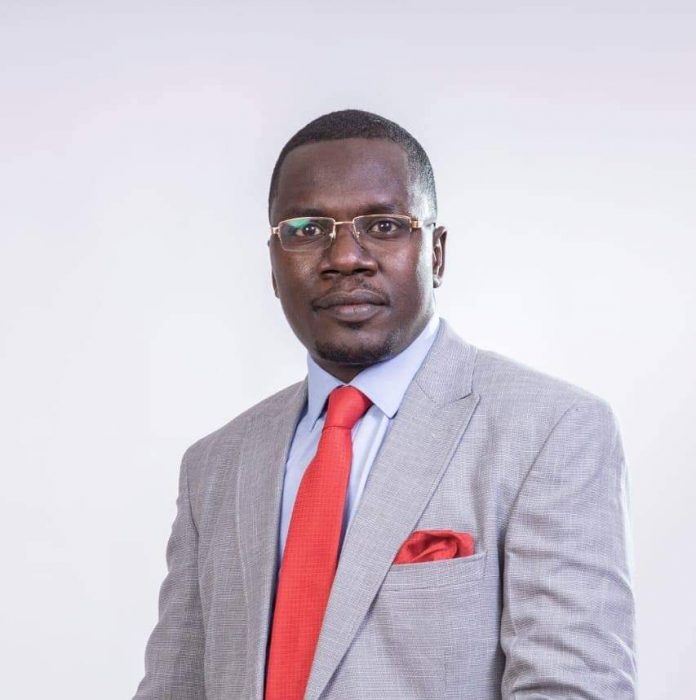By Fwamba NC Fwamba
In the unpredictable world of politics, it’s not only very important but equally necessary to accept that certainty is often an illusion. “Do politics as it is today; tomorrow, we’ll handle whatever it brings when we see it.” This statement encapsulates an undeniable truth: political realities are always shifting, and what we hold as truth today can quickly become irrelevant tomorrow. Bruce Lee’s famous advice, “Be water, my friend. Empty your mind; be formless, shapeless, like water… Now water can flow, or it can crash,” resonates deeply with political life. The ability to remain flexible, adaptable, and ready to face challenges as they come is a vital trait of successful politicians. Those who can adjust to the changing tides of politics are the ones who rise above in a world where nothing is ever static.
Adaptability becomes especially critical in the context of elections, particularly presidential ones, which are influenced by a multitude of unpredictable factors. It’s not just the candidates but the issues at play, shifting loyalties, and evolving concerns of the electorate that define the outcomes. Political analyst Philip E. Tetlock emphasizes the risks of overconfidence in predictions: “Overconfidence in predictions leads to errors, especially in complex environments.” As Tetlock’s research shows, attempting to predict political events far in advance is fraught with peril. In Kenya, for instance, predicting the outcome of the 2027 election today is as much a gamble as it is an exercise in futility, as so many variables are in flux. Facts should be separated from wishful thinking.

Lao Tzu, the ancient Chinese philosopher, understood the power of adapting to the changing tides of life. He once said, “Those who flow as life flows know they need no other force.” Lao Tzu’s wisdom highlights the futility of forcing fixed expectations on the future. In politics, where events rarely follow a straight path, being receptive to new information, ready for change, and willing to evolve with circumstances is not just a smart approach—it’s a strategic key to success.
J.R.R. Tolkien’s The Lord of the Rings offers an insightful lesson on navigating the shifting tides of circumstance. Gandalf, for example, embodies this philosophy. Faced with seemingly insurmountable odds, he tells Frodo, “All we have to decide is what to do with the time that is given us.” In politics, it’s often not the situation itself that determines success, but how one responds to it. The real power lies in making decisions in the face of uncertainty, understanding that the future is impossible to predict, and being prepared for anything that may come.
In Hamlet, Shakespeare explores how perception shapes reality. “There is nothing either good or bad, but thinking makes it so,” Hamlet reflects. This reminds us that the political environment is often more about how it’s perceived than the actual events unfolding. What may seem like a disaster today could be seen as an opportunity for growth tomorrow. The key is to shift our perspective, read the changing winds, and act accordingly.
Machiavelli grasped this dynamic with sharp precision. “The prince must be prepared to change with the times; for he who persists in his ways will be destroyed,” he wrote. Machiavelli’s counsel reinforces the notion that political outcomes are shaped by change, not by stubbornly sticking to outdated methods. Those who refuse to adapt to shifting times often find themselves sidelined by more agile competitors.
The power of adaptability is especially evident when we reflect on the political history of nations. Winston Churchill is a perfect example. He led Britain through its darkest days during World War II, not because he stuck to an unyielding political agenda, but because he could pivot quickly in response to an evolving global crisis. Churchill’s ability to shift from political opposition to a unifying wartime leader demonstrates the value of embracing the present moment, rather than relying on old assumptions. “To each, there comes in their lifetime a special moment when they are figuratively tapped on the shoulder and offered the chance to do a very special thing, unique to them and fit for their talents,” Churchill once remarked. His political adaptability allowed him to seize opportunities when others would have faltered.
Similarly, Franklin D. Roosevelt’s leadership through the Great Depression and World War II shows how adaptability shapes political outcomes. Roosevelt didn’t enter office with a rigid, unchanging vision. Instead, he responded to the country’s shifting needs, introducing bold new policies like the New Deal and guiding the United States through the global chaos of war. As Roosevelt once said, “The only thing we have to fear is fear itself.” His ability to adjust and lead, to shift course when necessary, and to confront new challenges head-on is a model for any leader to follow.
In more recent times, Angela Merkel’s leadership during the refugee crisis demonstrated just how essential adaptability is to contemporary politics. Merkel’s controversial decision to open Germany’s borders showed a remarkable ability to respond to an immediate, unforeseen challenge. Her leadership, marked by pragmatism and a willingness to change with the times, kept Germany stable during one of the most difficult periods in recent history. Merkel’s famous words, “We can do this,” reflected her unwavering belief in adjusting to the demands of the moment.
A major event that shook political and economic systems worldwide was the COVID-19 pandemic. The abrupt shift in global dynamics highlighted the importance of flexibility and quick thinking. The pandemic did not just disrupt economies; it also radically transformed political alignments and priorities. Leaders who failed to adjust to the realities of a global health crisis saw their influence wane, while those who responded effectively built a new kind of trust with their people. The pandemic exposed the fragility of many systems and underscored the critical importance of staying agile in the face of unprecedented challenges.
In the United States, President Barack Obama’s success in winning a second term amid the economic challenges of the Great Recession serves as another potent example of political adaptability. Obama’s victory, initially seen as an improbable feat due to the economic downturn, was propelled by his ability to work across political divides. His bipartisan approach, exemplified by his collaboration with Senate Minority Leader Mitch McConnell and other members of the “Gang of Six,” allowed him to broker agreements that helped address the economic crisis. Obama’s capacity to adapt to a shifting political environment, aligning with adversaries to secure his legislative goals, ultimately laid the foundation for his reelection.
As we approach Kenya’s 2027 elections, political players must be prepared to constantly adjust their strategies. The dynamics surrounding the upcoming election will undoubtedly shift in ways that we can’t yet predict. The complex interplay of alliances, voter concerns, and national issues will evolve as we move closer to the election. Anyone making bold, definitive predictions about what will happen in 2027 is overlooking the volatile nature of politics. What seems certain today could be completely upended tomorrow.

Karl Popper, the philosopher of science, captured this uncertainty perfectly when he said, “The future is open; it depends on us, on all of us.” The future of Kenyan politics is anything but set in stone. Anyone who is overly confident about predicting the outcome today is missing the larger point. The future remains wide open, and it’s only through staying responsive, open to change, and willing to adapt that we can make sense of where things are heading. Accurate predictions about the 2027 election may only be possible once the major political players and key issues come into sharper focus in the final stretch.
This calls for a disciplined, cautious approach to political analysis, one that avoids rushing to conclusions. Sociologist Zygmunt Bauman’s concept of “liquid modernity” emphasizes that the world is in a constant state of change. “The future is not a fixed destination; it is a constant process of becoming,” Bauman wrote. Political actors today must embrace this fluid approach, understanding that rigid strategies and premature predictions are not only impractical—they could also prove disastrous.
Adaptability isn’t just an asset—it’s an absolute necessity. As we look towards 2027, it’s far too soon to make definitive conclusions about which alliances will endure,which politician will be in whose camp, which issues will dominate, and who will emerge victorious. Those who confidently predict the outcome today are failing to learn from history and from the great political thinkers who have emphasized the importance of staying flexible. In politics, as in life, the secret to success is knowing when to adjust, when to flow with change, and when to embrace uncertainty. The future of Kenyan politics is still unfolding, and it’s up to all of us to shape it with wisdom and adaptability.
*Fwamba NC Fwamba is the Chairman of the National Alternative Leadership Forum*



